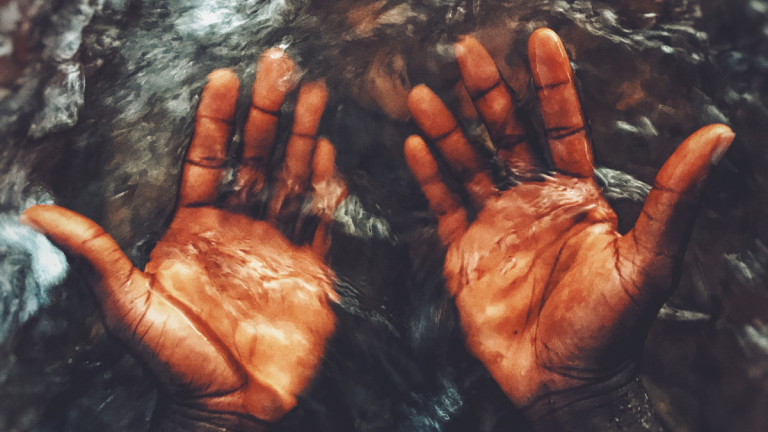In what has become a grim annual tradition, Islamist militants in Nigeria carried out targeted attacks on Christians on Christmas Eve. Up to 200 dead and around 300 injured confirmed in attacks in 20 villages in north-central Plateau State. Islamist militants have carried out similar attacks at Christmas for at least four years.
The population of Nigeria is almost equally divided between Muslims and Christians, a religious division that largely follows geographic lines. The northern part of the country is predominantly Muslim, while the eastern and southern parts are predominantly Christian. The center of the country, sometimes called the “Central belt”, is ethnically and religiously diverse.
It is not surprising that the threat against Christians originated in the Islamic north, although it has now spread to southern regions. Three groups are responsible for this Open doorscalled for a campaign of “religious cleansing” against Christians. Boko Haram, one of the world’s most notorious Islamist terrorist groups, is responsible for the murder of thousands of Christians and the displacement of countless others since violence began escalating in 2015. In recent years, their cruelty was accompanied by a rival group, the Islamic State in West Africa.
As dangerous as these explicitly Islamist groups are, the Fulani herdsmen are even worse. Because the Fulani territory of northern Nigeria is suffering from a long-term drought, the Fulani are moving south to access water. To seize land and drive out Christians, herdsmen attacked and burned villages, massacred villagers, destroyed crops, and engaged in a host of other atrocities. It was the Fulani who carried out this year’s Christmas attacks.
For years, the Nigerian government denied the obvious religious dimensions of the Fulani herdsmen, saying instead that it was a conflict between farmers and herders. Former President Muhammadu Buhari is a Fulani. Although he attempted to address some of the economic issues that drive Fulani militancy, he always denied that religion played a role in the conflict, pointing out that Muslim villages had also been attacked. However, the vast majority of attacks have been against Christians, including Christians in churches at Christmas and Easter.
In fact, the history of Fulani Islamic militancy dates back to the late 17th century. Denying the religious dimension of these attacks is pure propaganda, according to the governor of Plateau State, Caleb Mutfwang. In a New Year’s broadcastHe called for a week of mourning to begin 2024, calling the recent killings a “Christmas genocide” and recognizing the more than 400 people killed between April and June 2023.
These unprovoked and simultaneous attacks in different villages were clearly premeditated and coordinated.
This series of attacks on our people constitutes a clear case of criminality, insurgency and terrorism and must be viewed and dealt with in this manner if we are to succeed in stopping this wanton destruction of lives and property.
For the avoidance of doubt, it is a distortion of the facts to describe these unnecessary and unprovoked attacks on our people as a clash between farmers and herders, as has always been the traditional narrative. Let’s call a spade a spade ; This is simple genocide!
Indeed, what has happened to Nigerian Christians over the past decade and beyond meets the established international standards for the term genocide. And yet, like Johnnie Moore rated on X“The @StateDept is reluctant to speculate on the motive of the perpetrators of the massacre of 200 Christians in Nigeria over Christmas, in an area plagued by terrorists. »
It is very doubtful whether Nigerian Christians can expect help from the current President of Nigeria, who was sworn in last May. Not only is Bola Ahmed Tinubu a Muslim, but he broken with tradition to choose a Christian as vice-president. Given that the country’s two highest officials are Muslims, many are understandably skeptical of the president’s condemnation of attacks on Plateau State, as well as his promise that “The messengers of death, pain and sorrow responsible for these acts will not escape justice. »
Fueling the skepticism could be because in mid-December President Tinubu called his predecessor “an icon of truth, justice and patriotism”. He then followed the habit of his predecessor by not grateful no religious motivation for the Christmas Day attacks.
Even though everyone does it, Christians must not forget the spiritual root of this conflict. For more than a century, God has been acting and the Church has been expanding across Africa. In 1900 there was only 9.64 million Christians on the continent. Today there are more than 692 millionAnd they are among the most committed Christians in the world. It is not surprising that Satan inspires their continued persecution.
For our Nigerian brothers and sisters, we can fight on two fronts. First, we must continue to pressure our government on their behalf, asking our officials to pressure Nigeria to take more decisive action against Boko Haram and the Fulani herdsmen. Second, we must press Heaven, both for our persecuted brothers and sisters and for their persecutors, praying that the Kingdom of God will advance and win even the jihadists to Jesus.
For more resources for living like a Christian in this cultural moment, visit breakpoint.org.


